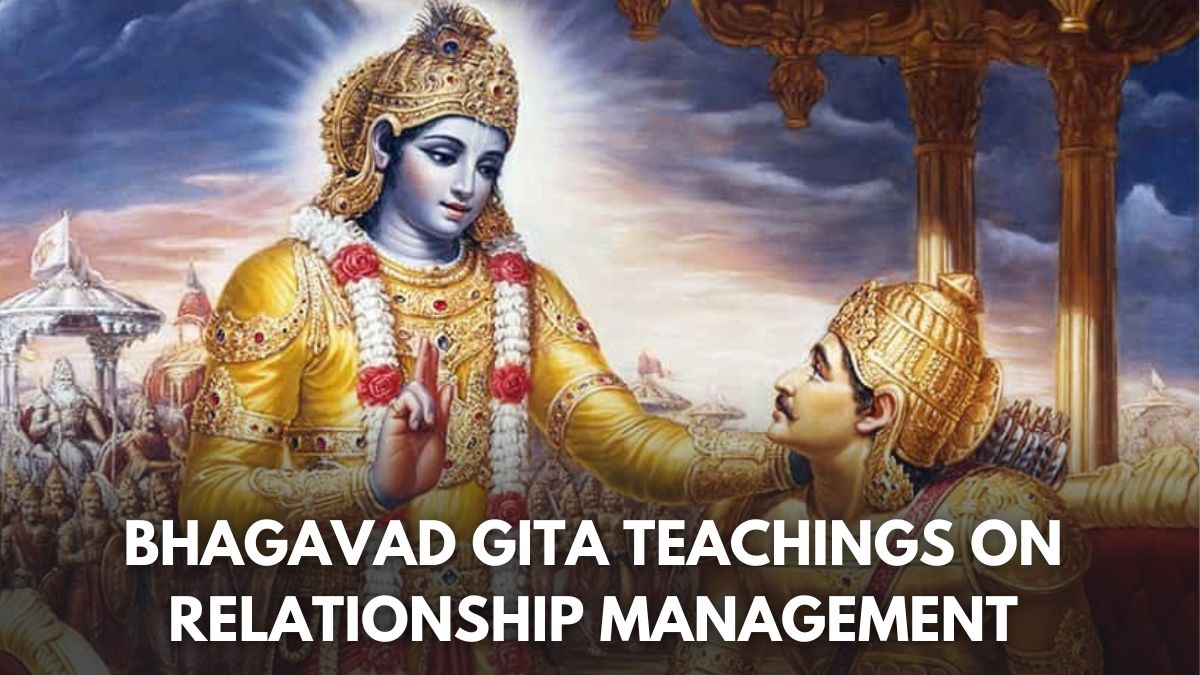- By Kashish Rai
- Sun, 25 Feb 2024 12:41 PM (IST)
- Source:JND
The 700-verse Hindu text known as the Bhagavad Gita is a part of the Mahabharata. It is a sacred text that provides deep insight and direction on a range of topics, including relationships, and personal as well as professional life. Today, let us uncover the 5 key lessons from the Bhagavad Gita on managing relationships effectively.
5 Lessons From Bhagavad Gita On Managing Relationships
1. Meeting The obligations Of Dharma And Duty
Bhagavad Gita places a strong emphasis on performing one's duty. This refers to realising and carrying out our obligations in different positions, such as that of a spouse, parent, friend, or family member, in the context of relationships. People make a beneficial impact on their relationships and foster harmony when they live according to their dharma.

The Bhagavad Gita offers knowledge and insight into various aspects corresponding to our day-to-day lives. (Image Source: ISKCON Bangalore)
2. Practicing Detachment
Detachment is one of the Gita's core teachings. It suggests that we shouldn't get unduly connected to the results of our efforts, not that we should avoid connections altogether. We may lessen the negative effects of expectations and disappointments on our relationships by engaging in non-attachment practices. We don't have to rely on other people's emotions to show us love and care for us.
3. Implying The Concept Of Karma Yoga
The Bhagavad Gita revolves around the premise of Karma Yoga. It inspires people to carry out their responsibilities with altruism and without regard for the consequences. Giving without expecting anything in return is the foundation of this principle's use in relationships. Our connections become more real and less transactional when we respond with love and selflessness.
4. Focusing On Self-Realisation
The Bhagavad Gita inspires people to have a greater understanding of who they are. It teaches that realisation of oneself is the first step towards authentic knowledge. To establish successful connections with others, we need to first have a good understanding of our own needs, wants, anxieties, and shortcomings. Through reflection and self-awareness, we may enhance our ability to manage our relationships with honesty and compassion.
ALSO READ: What Does Bhagavad Gita Says About The Food You Eat? Know How Food Habits Affect Your Nature
5. Always Respecting Others
The Bhagavad Gita promotes the concept of universal fraternity and respect for every living being. It highlights the fact that everyone is interconnected on a spiritual level. This knowledge promotes tolerance, empathy, and compassion in our interpersonal interactions.

